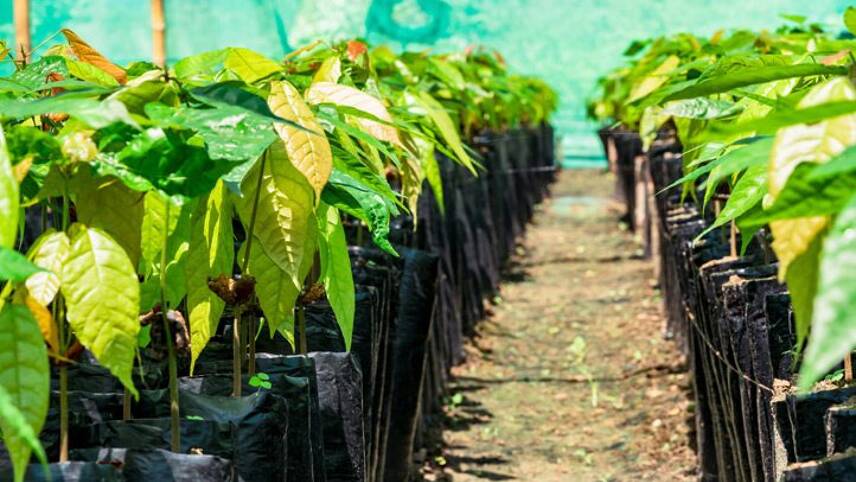Register for free and continue reading
Join our growing army of changemakers and get unlimited access to our premium content

In 2010 companies such as Mars
Over a weekend where Easter Eggs were enjoyed in abundance, Reuters has reportedly obtained a draft of a US Government-funded report looking into child labour in the cocoa industry. The previous iteration of the report found that 44% of children in families working in the cocoa sector were working under child labour conditions, back in 2014.
The new draft report obtained by Reuters suggests that this figure has increased by around 2%, with more than two million children now working in the sector in countries that account for two-thirds of the world’s cocoa.
“This report makes a strong case for understanding child labour and hazardous child labour in cocoa production as a complex problem requiring multiple complementary solutions,” the report said.
Separate research from Tulane University suggests that around 2.1 million children work in the cocoa industry, 96% of which are working under conditions deemed hazardous. The industry has also been heavily linked to deforestation, with the World Resources Institute finding that in top cocoa-producing countries, Ghana and Cote d’Ivoire deforestation was increasing, while cocoa farmers were living in poverty.
Cocoa traders who sell to Mars, Nestlé, Mondelez and other big brands buy beans grown illegally inside protected areas in Côte d’Ivoire, where rainforest cover has been reduced by more than 80% since 1960.
Rotten eggs
NGO Mighty Earth collected cocoa data and maps of regions where cocoa is grown and layered it over maps of deforestation between 2000 and 2016. The group found that large-scale deforestation was occurring across West Africa and that the trend could expand globally if businesses did not drive change.
In 2010 companies such as Mars, Hershey, Nestle and Cargill pledged to reduce the worst forms of child labour in their West African supply chains by 70% by 2020.
For Easter, Mighty Earth surveyed 13 chocolate companies and eight cocoa suppliers on policies and approach to pressing sustainability issues, including mandatory due diligence; transparency and traceability; deforestation and climate change; agroforestry; living income policies; and child labour, focusing primarily on child labour monitoring and remediation systems.
Chocolate maker Godiva ranked bottom for failing to take responsibility to drive improvements across the areas, while Tony’s Chocolonely, which sources from the same supplier as Godiva, earned the Golden Egg Award.
“Equipped with this scorecard, consumers can buy their Easter chocolates knowing whether their treats are likely tainted by deforestation and human rights abuses,” Mighty Earth’s senior campaign director Etelle Higonnet said.
“Consumers’ purchases highlight that we, at a time of global crisis, are all truly interconnected and that we are in this together.”
Supplier engagement
Some companies in the sector have championed supply chain engagement.
Mondelēz International, which owns brands including Cadbury and Dairy Milk, has increased a transparency drive on farms in the world’s largest two cocoa-producing countries that are registered under the firm’s ethical and sustainable sourcing programme.
Mondelēz International’s Cocoa Life initiative was originally launched in 2012 with a $400m commitment over a decade to build a cocoa supply chain, working directly with farmers and communities on skills, education, access to resources such as planting materials and crop protection.
Over the last two years, Cocoa Life has trained more than 134,000 farmers across the three countries on agricultural practices that increase yields while protecting the environment against things like deforestation.
Elsewhere, Olam Cocoa’s Farmers Information System (OFIS) has recorded the training activities and agricultural practices of individual farms, as well as GPS map data like farm size and distance to vital social infrastructure to help create bespoke farming development plans for sustainable approaches to agriculture.
Matt Mace


Please login or Register to leave a comment.